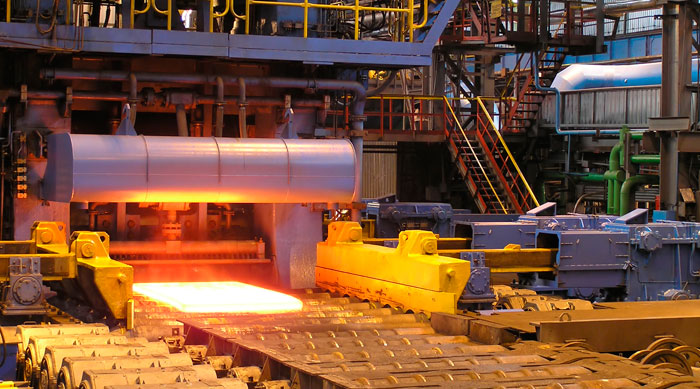Thyssenkrupp has finally backed a merger with Tata Steel

The board of Germany’s ThyssenKrupp said late on Friday evening it has finally approved terms on a 50/50 steel joint venture with Tata Steel after months of talks.
thyssenkrupp boards approve creation of a 50/50 #steel joint venture with Tata Steel. Signing of a definitive agreement expected shortly. #wayforwardforsteel
— thyssenkrupp EN (@thyssenkrupp_en) June 29, 2018
The move will combine the European steel businesses of ThyssenKrupp and Tata Steel and follows the signing of a Memorandum of Understanding in September 2017.
The deal once signed will create the second-largest steelmaker in Europe, behind ArcelorMittal.
The joint venture will be named Thyssenkrupp Tata Steel and will have annual sales of around £13bn a year and be based in the Netherlands.
Tata employs around 7,000 people in Wales, including at Deeside.
Secretary of State for Wales Alun Cairns said:
“This announcement is a significant and welcome moment for the UK steel industry.
The UK Government will continue to support the new management team and work with the trade unions as the new company develops its business plan.”
In a statement ThyssenKrupp said:
“Due diligence and independent expert opinions have confirmed the economic viability of the new company and the expected annual recurring synergies of €400 to 500 million.
The joint venture with Tata Steel is an important milestone for the transformation of ThyssenKrupp to an industrial and service group and will lead to a significant improvement of the financial figures of ThyssenKrupp, effective with closing.
The signing of the definitive agreement is expected shortly.
The transaction is subject to merger control clearance in several jurisdictions, including the European Union.”
Unions cautiously welcomed the signing of the Memorandum of Understanding last year.
At the time a spokesperson for National Trade Union Steel Coordinating Committee said:
“There is undoubtedly an industrial logic behind a partnership which would create the second biggest steel business in Europe with all the benefits that could bring for the UK.”
While a merger of this size will inevitably mean a review of support functions such as HR and IT, the vast majority of these roles are no longer located in the UK.
We have been assured there will be no asset closures or reductions in production capacities across the UK. If the company does seek to implement compulsory redundancies we will fight that using every necessary means.”
Latest News









